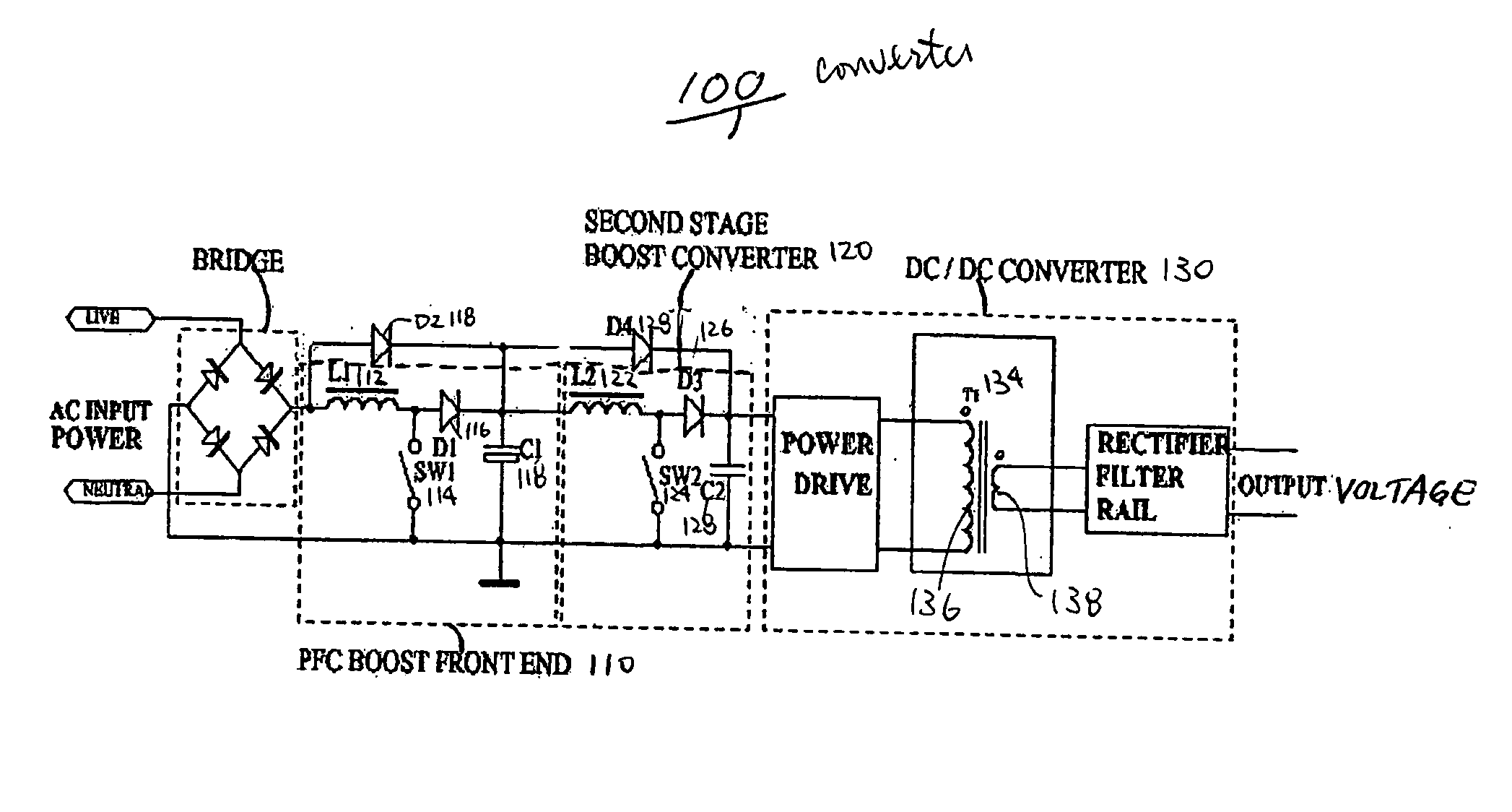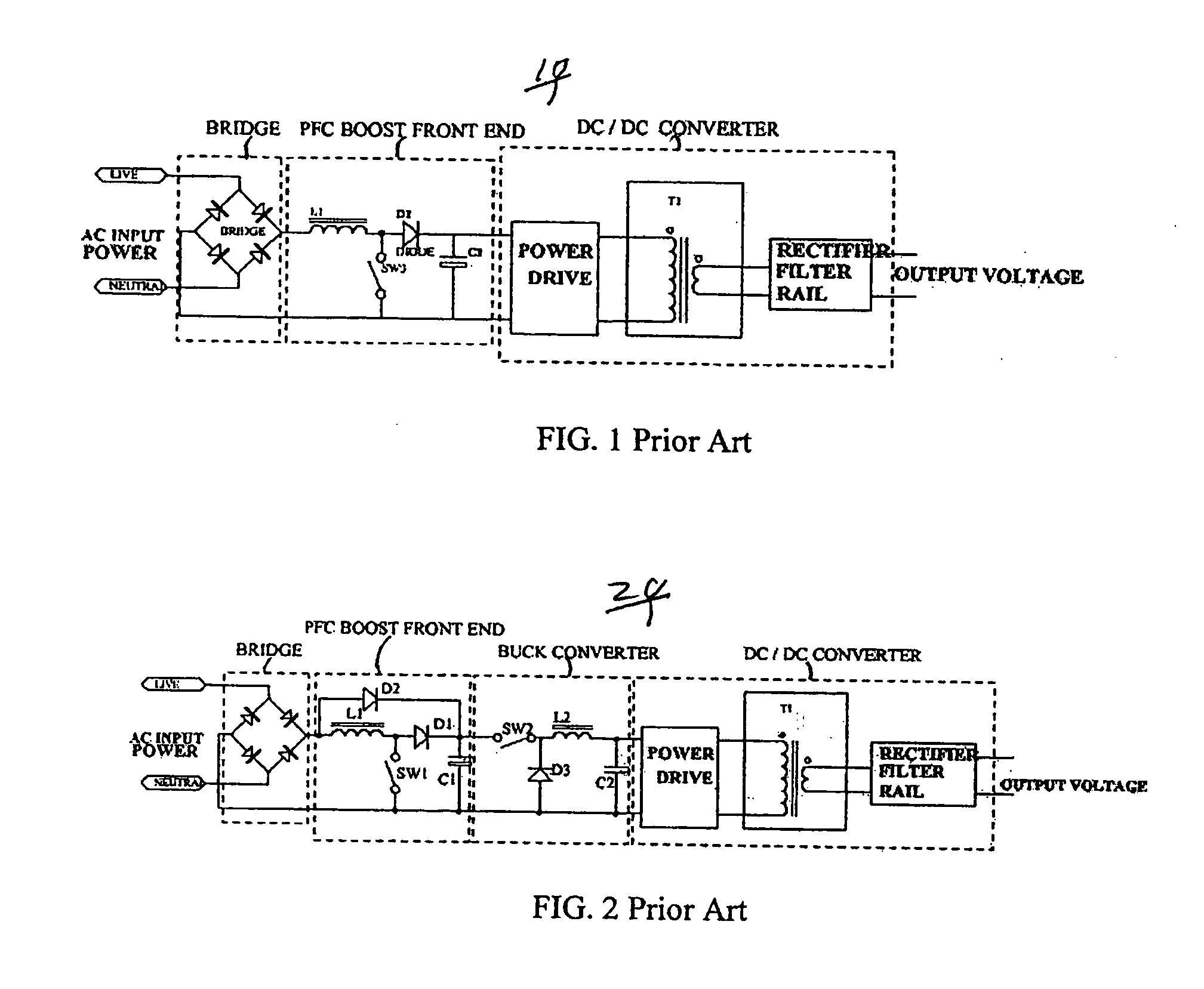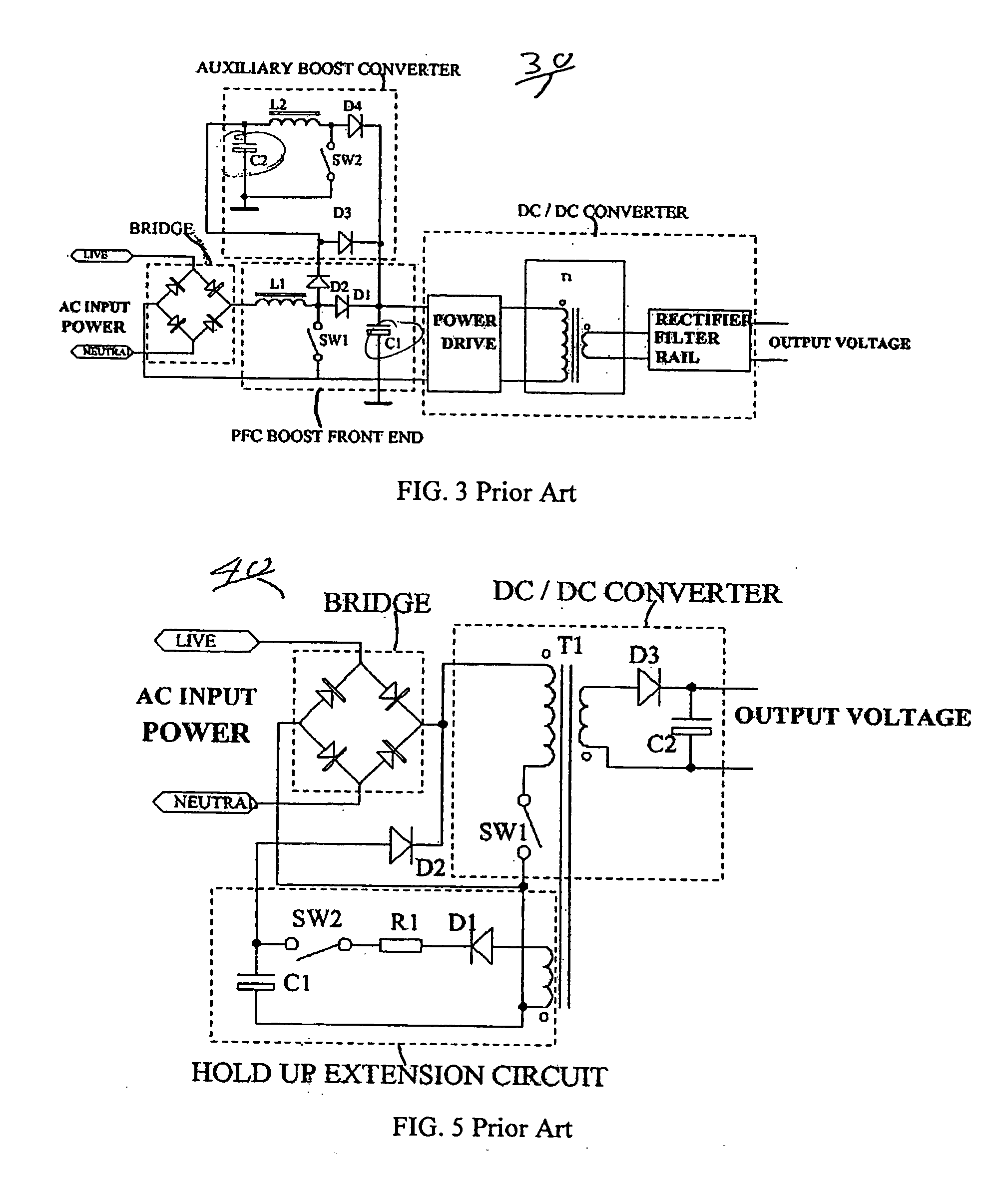Circuit for maintaining hold-up time while reducing bulk capacitor size and improving efficiency in a power supply
a technology of bulk capacitors and power supply, which is applied in the direction of dc-ac conversion without reversal, process and machine control, instruments, etc., can solve the problems of significant efficiency drop, inability to operate over a very wide duty cycle, and inability to achieve the effect of reducing the operating range of input voltage and voltage stress, improving efficiency of dc to dc converter, and reducing peak current and voltage stress
- Summary
- Abstract
- Description
- Claims
- Application Information
AI Technical Summary
Benefits of technology
Problems solved by technology
Method used
Image
Examples
Embodiment Construction
[0038] A preferred embodiment of a circuit according to the present invention is shown at 100 in FIG. 6. Converter 100 includes a first stage boost converter 110, a downstream DC to DC converter 130, and a second stage converter 120 inserted between the first stage boost converter 110 and the DC to DC converter 130. A rectified input AC voltage is boosted by the first stage boost converter 110, comprising an inductor L1112, a switch SW1114, a diode D1116, and a bulk capacitor C1118. The first stage boost converter 110 provides a boosted bulk voltage across capacitor C1118. The second stage converter 120 of converter 100 is preferably a boost converter comprising an inductor L2122, a switch SW2124, a diode D3126, and a decoupling capacitor C2128. As shown in FIG. 6, the DC to DC converter 130 is coupled between the output and the second stage boost converter 120. The downstream DC to DC converter 130 includes a conventional power drive circuit coupled between the second stage boost c...
PUM
 Login to View More
Login to View More Abstract
Description
Claims
Application Information
 Login to View More
Login to View More - R&D
- Intellectual Property
- Life Sciences
- Materials
- Tech Scout
- Unparalleled Data Quality
- Higher Quality Content
- 60% Fewer Hallucinations
Browse by: Latest US Patents, China's latest patents, Technical Efficacy Thesaurus, Application Domain, Technology Topic, Popular Technical Reports.
© 2025 PatSnap. All rights reserved.Legal|Privacy policy|Modern Slavery Act Transparency Statement|Sitemap|About US| Contact US: help@patsnap.com



